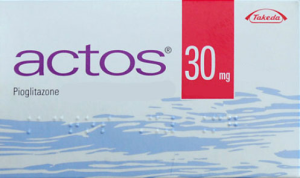Actos Cancer Lawsuit Filed in Louisiana District Court
For drug companies like Takeda Pharmaceuticals and Eli Lilly, the diabetes drug Actos has brought about unprecedented sales, untold profits and global notoriety as a “safe and effective” treatment option for adults suffering from the effects of Type II diabetes.
For plaintiffs like William and Phyllis Harstein of Village of Orange, Ohio, the drug has allegedly caused the sudden and unexpected onset of bladder cancer, requiring painful treatments, excruciating discomfort and unrelenting mental anguish.
Nonetheless, the plaintiffs assert, the drug companies continue to promote Actos to doctors and pharmacists across the United States – reeling in $4.8 billion in the process.
Actos background
The drug Actos was introduced to the American market in 1999 as a result of a joint launch by defendants Eli Lilly and Takeda. The drug is designed and marketed to help treat blood glucose level increases in patients with Type II diabetes, which occurs when the body does not make enough insulin to adequately regulate blood sugar levels. The drug belongs to a class known as “thiazolidinediones” and works as an “insulin-sensitizing agent” to create an anti-hyperglycemic effect.
Notwithstanding these benefits, the diabetes drug is also linked to the development of bladder cancer – a phenomenon the plaintiffs assert was well known to the defendants for several years prior to the onslaught of Actos lawsuits mounting similar claims.
Timeline of Actos complications
According to the details of the plaintiffs’ complaint, Actos has proven problematic since not long after its introduction, including the following allegations:
- Two years prior to the introduction of Actos, a two-year study was conducted on rats and mice, revealing the development of drug-induced tumors in male specimens;
- In 2005, the results of a three-year Actos study were published, revealing a correlation between male use of Actos and the development of bladder cancer;
- A separate three-year study on the liver was conducted, and again revealed a correlation between Actos use and heightened instances of bladder cancer;
- In 2010, the FDA issued a Safety Announcement wherein it promised to evaluate the risks of Actos use and bladder cancer;
- In 2011, the American Diabetes Association made similar discoveries, which were published in an article known as Assessing the Association of Pioglitazone [Actos] Use and Bladder Cancer Through Drug Adverse Event Reporting.
- In 2011, the drug was pulled from the market in France and Germany;
Shortly after the suspension of Actos sales overseas, Takeda opted to issue a recall of the drug in France. Nonetheless, despite all the above evidence to the contrary, the company continued to market and sell the drug to American consumers – prompting hundreds of plaintiffs to launch personal injury actions alleging the company committed negligence for continuing to knowingly subject patients to such a dangerous medication.
Plaintiffs’ assertions
On July 15, 2015, the Harsteins filed their complaint in U.S. District Court for the Western District of Louisiana. According to the factual allegations, Mr. Harstein was prescribed the drug in November, 2006 for the treatment of his Type II diabetes. On May 28, 2015, he was diagnosed with bladder cancer, which was officially confirmed by cystoscopy and pathology results one month later.
Pursuant to their lawsuit, the Harsteins are seeking compensation for their medical expenses, pain and suffering and mental anguish. The parties are also seeking compensation for expenses related to the elevated costs of living incurred as a result of the diagnosis. Moreover, Mrs. Harstein is seeking compensation for the loss of consortium, consideration, compassion and care from her husband as he endures his illness.
- FDA.gov, FDA Drug Safety Communication, http://www.fda.gov/Drugs/DrugSafety/ucm259150.htm
- ABCNews.go.com, http://abcnews.go.com/Health/DiabetesTreatment/fda-warns-bladder-cancer-risk-actos/story?id=13850066



 Resources
Resources
 Resources
Resources
